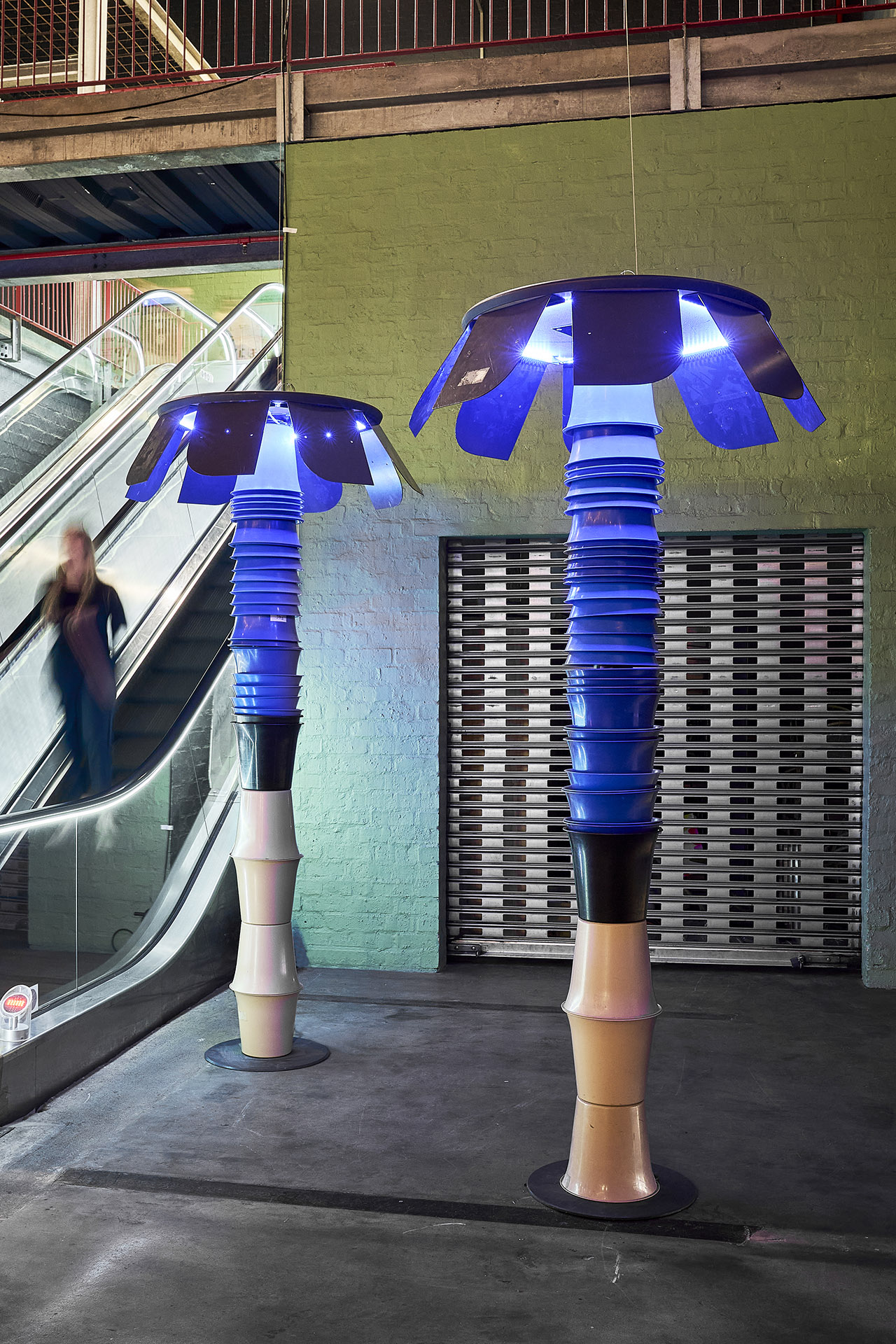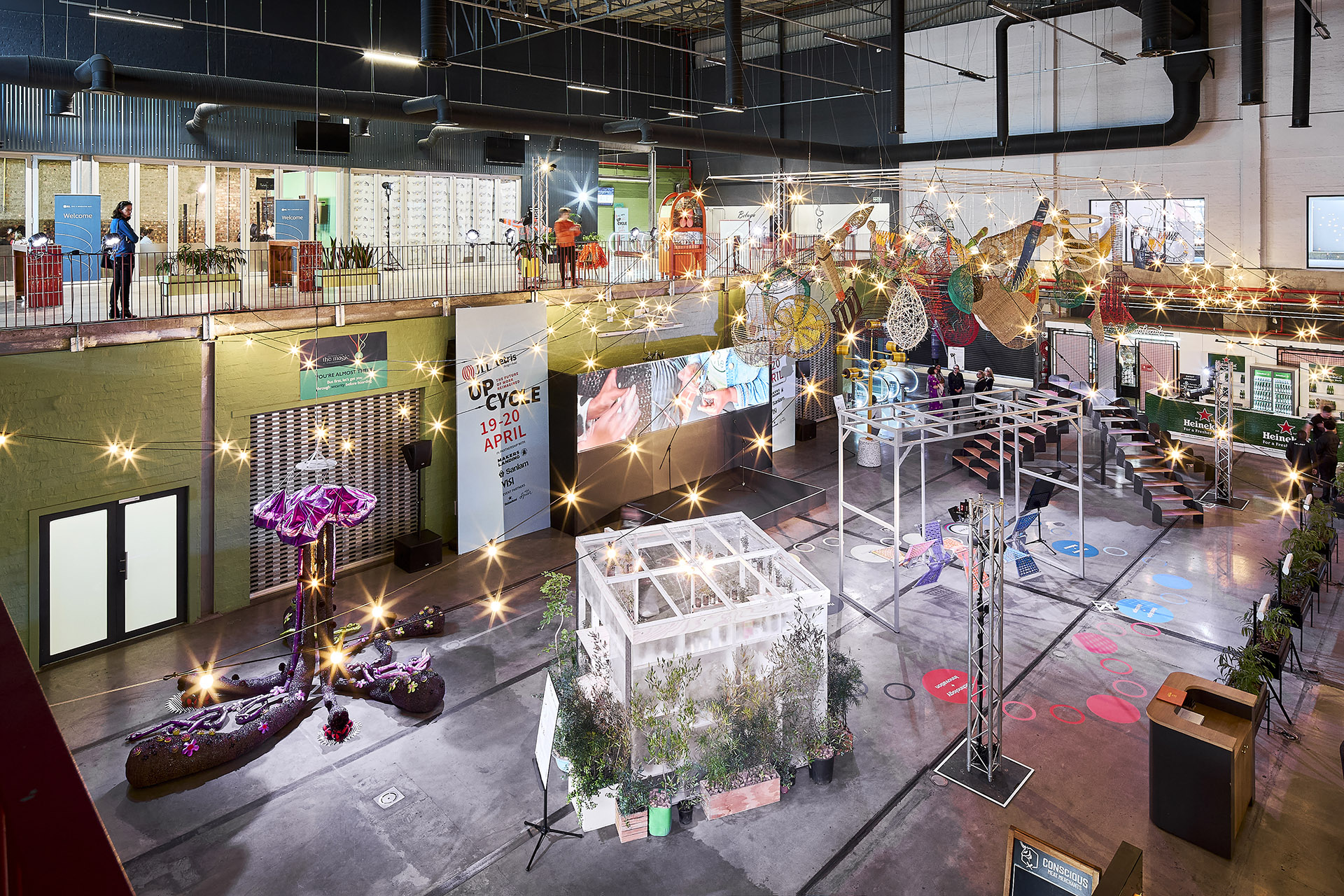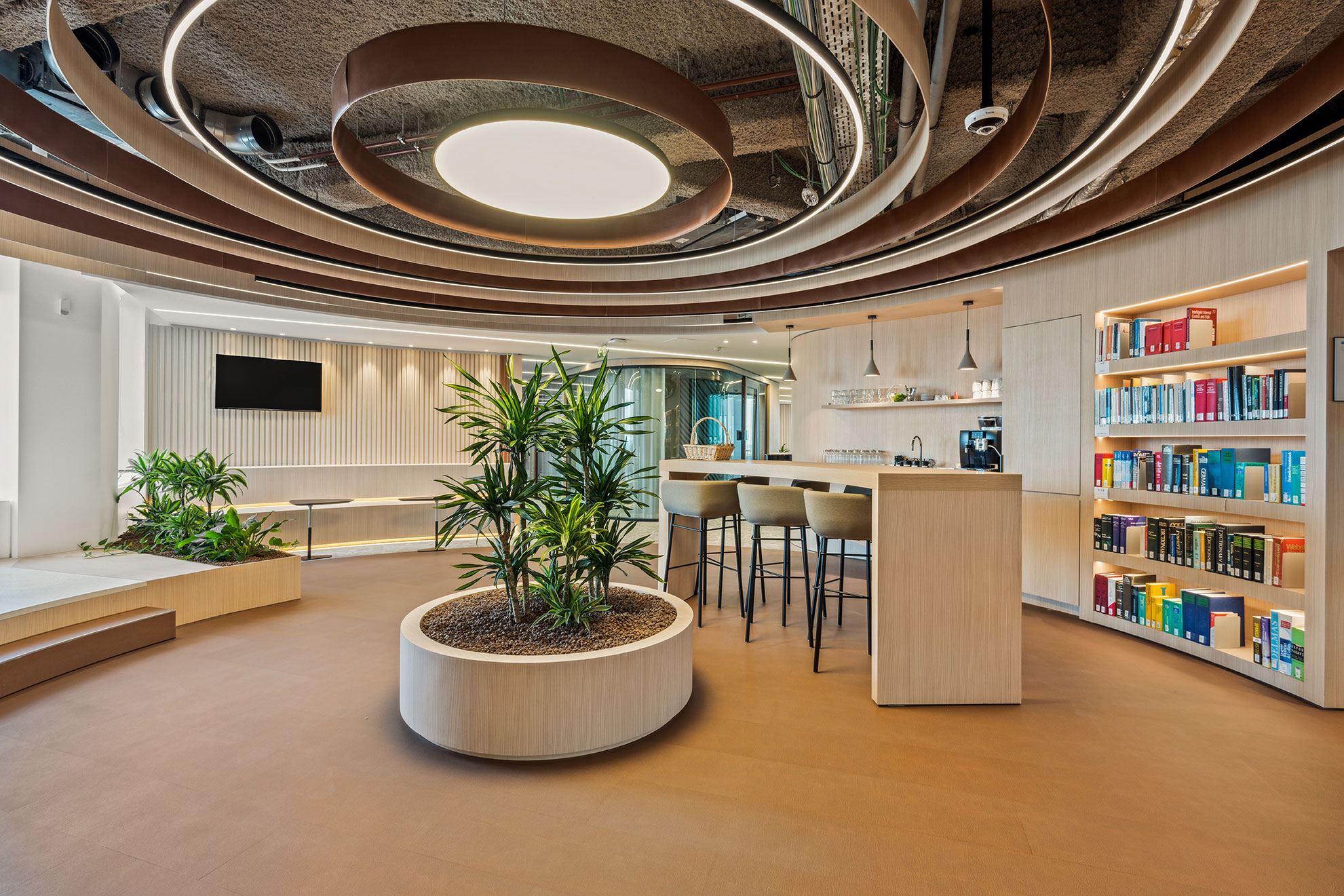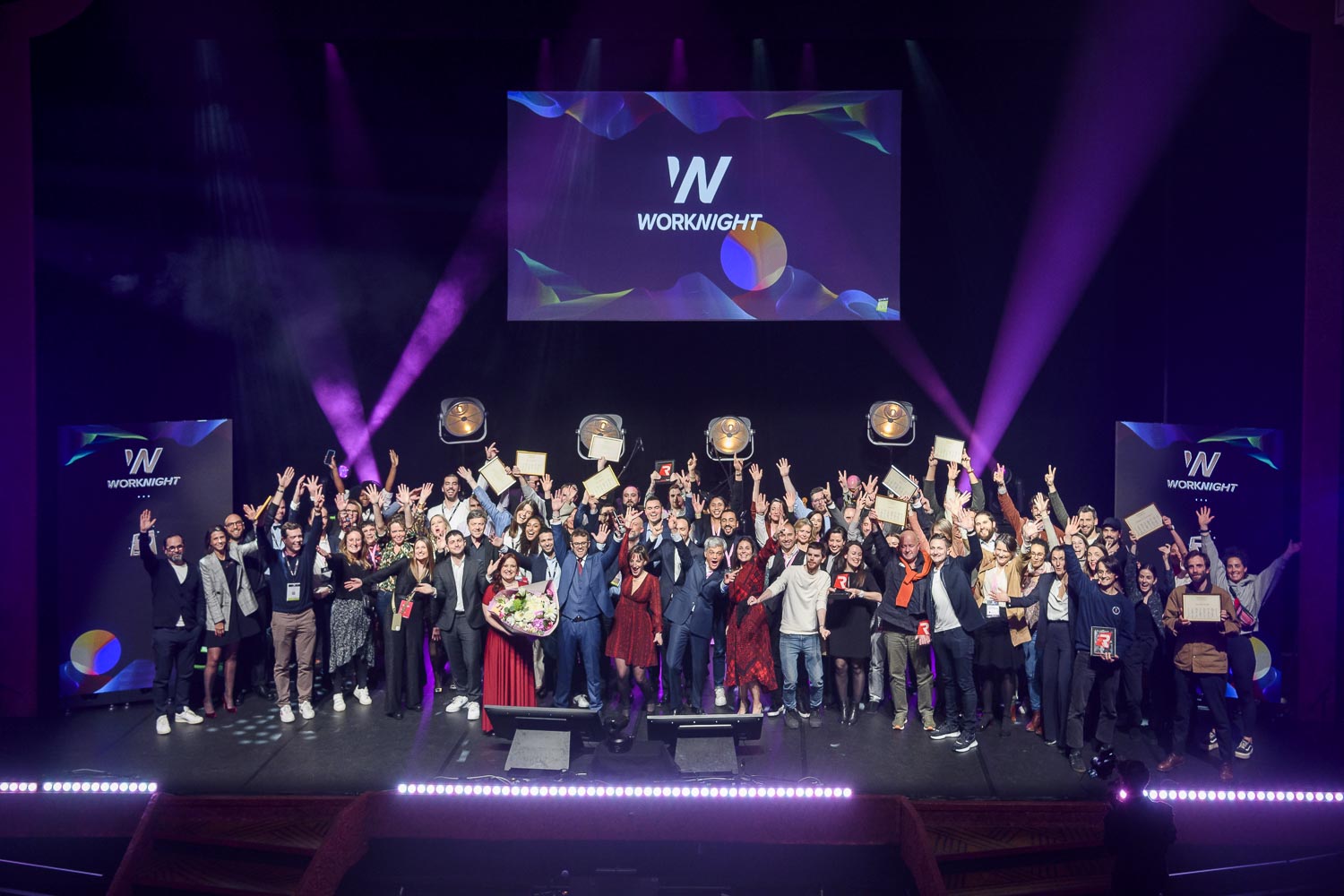The rising demand for a more sustainable workplace is shaping the future of office space. This trend is being driven by net-zero carbon commitments, rigorous legislation, and increased environmental consciousness among businesses. Our UPCYCLE initiative responds to a growing issue that has arisen post-Covid. As businesses reconfigure workspace to meet evolving employee needs, they’re being left with a significant amount of unusable ‘end-of-life’ office equipment.
The objective of the UPCYCLE exhibition was to help us imagine an alternate approach to materials, equipment and furniture for the future of work. We commissioned leading designers to create art installations using obsolete office equipment, which we exhibited in the heart of Cape Town, South Africa to different audiences through memorable events and public viewings.
We brought together local and international designers and artists to give new life to donated ‘leftovers’ from Sanlam, Africa’s largest insurance company. These creatives included the likes of Patrick Bongoy, Wiid Design, Hoven Design, and Ananta Design Studio Furthermore. Each installation went through an assessment based on the Tetris Sustainability Code, which scored the sustainability of each transformed piece.
Items were transformed into a spectrum of unique installations such as a colossal helix swing fashioned from desk legs, a seed library nestled in an upcycled cabinet, and a floor lamp designed from bookshelves and plastic bins. A sight to behold, the transformed pieces created an imaginative vision of a 2050 workplace.
After the exhibition, all the UPCYCLE installations will take up permanent residence at dedicated office sites of Sanlam and other clients. The installations will carry tags detailing their concept, the furniture they were upcycled from, and their sustainability score. These novel additions serve to raise awareness of the power of circular design and its impact on a workspace, nudging employees to think differently about design and consumption.
Tétris Design and Build’s UPCYCLE project is a sterling example of intertwining sustainability and creativity to create future office spaces. Not only does this initiative reduce waste, it also fosters a culture of sustainability. The UPCYCLE project embodies the belief that every phase of commercial real estate can be imbued with principles of environmental stewardship and economic viability.
Oxygen Farm
Tétris CDT, Adrian Davidson, TreePrenuers, Lesley Joemat
Tétris Sustainability Score: 93% Recycled Material , 7% New Material
A refreshing work pod made from 26 perspex COVID-19 desk screens and left over timber from an office installation. The plants filling the space are indigenous and known as one of the worlds carbon super-plants for their ability to produce high volumes of oxygen. The containers for the plants are UPCYCLED old tins, shoes, punctured footballs. The Rebel Chair inside the pod is made from compressed recycled upholstery.
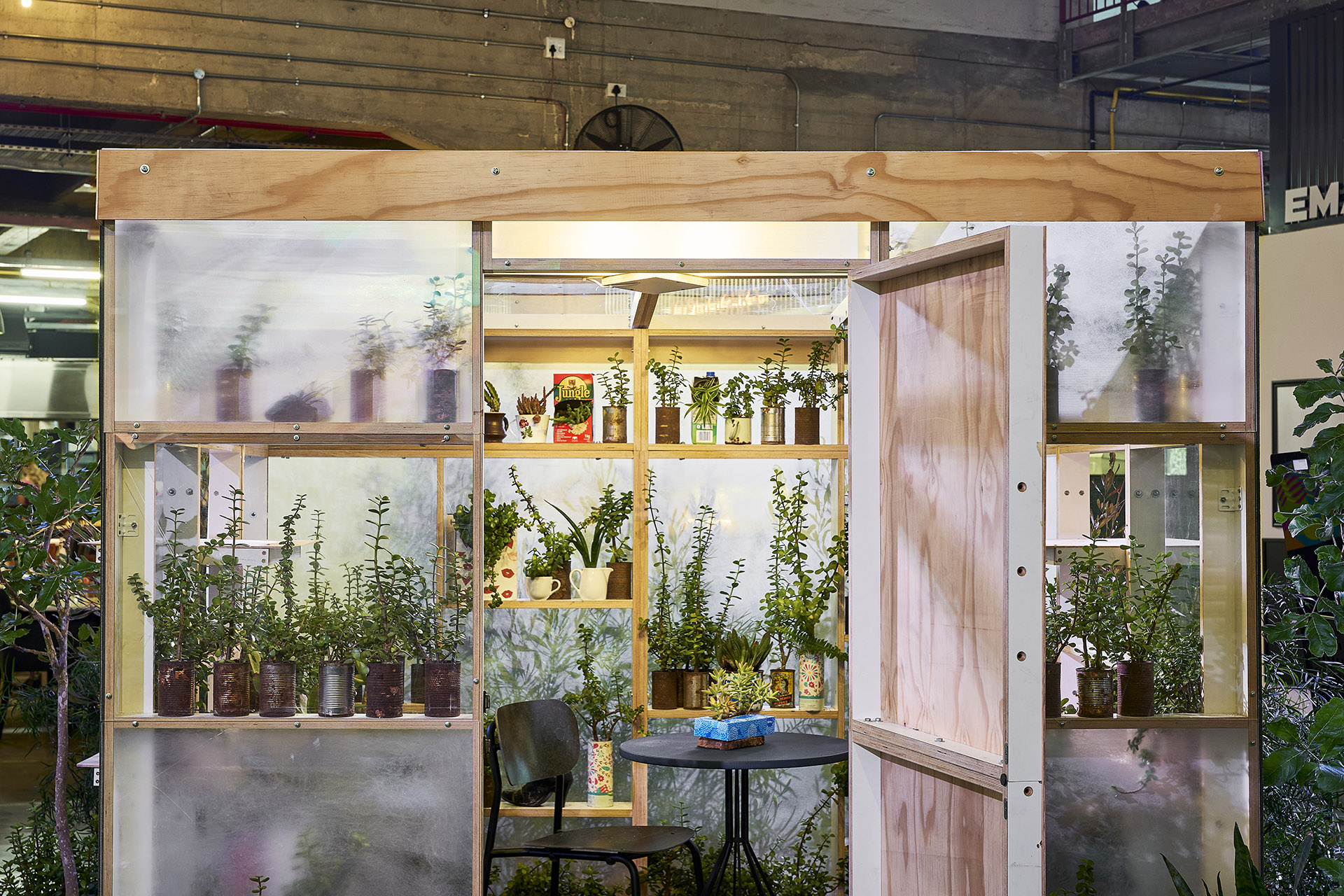
Birdhouse Version 2 UPCYCLED
Wiid Design
Tétris Sustainability Score: 75% Recycled Material, 25% New Material
A powder coated stainless steel sculptural tower with cork nests for birds housed in 18 repurposed dustbins. The cork is 100% natural and biodegradable. The concept places emphasis on the importance of conserving wildlife and biodiversity, while also promoting the power of collaboration. It is an outdoor sculpture with a second function, something that adds to the environment and its inhabitants, other than merely an object of beauty.
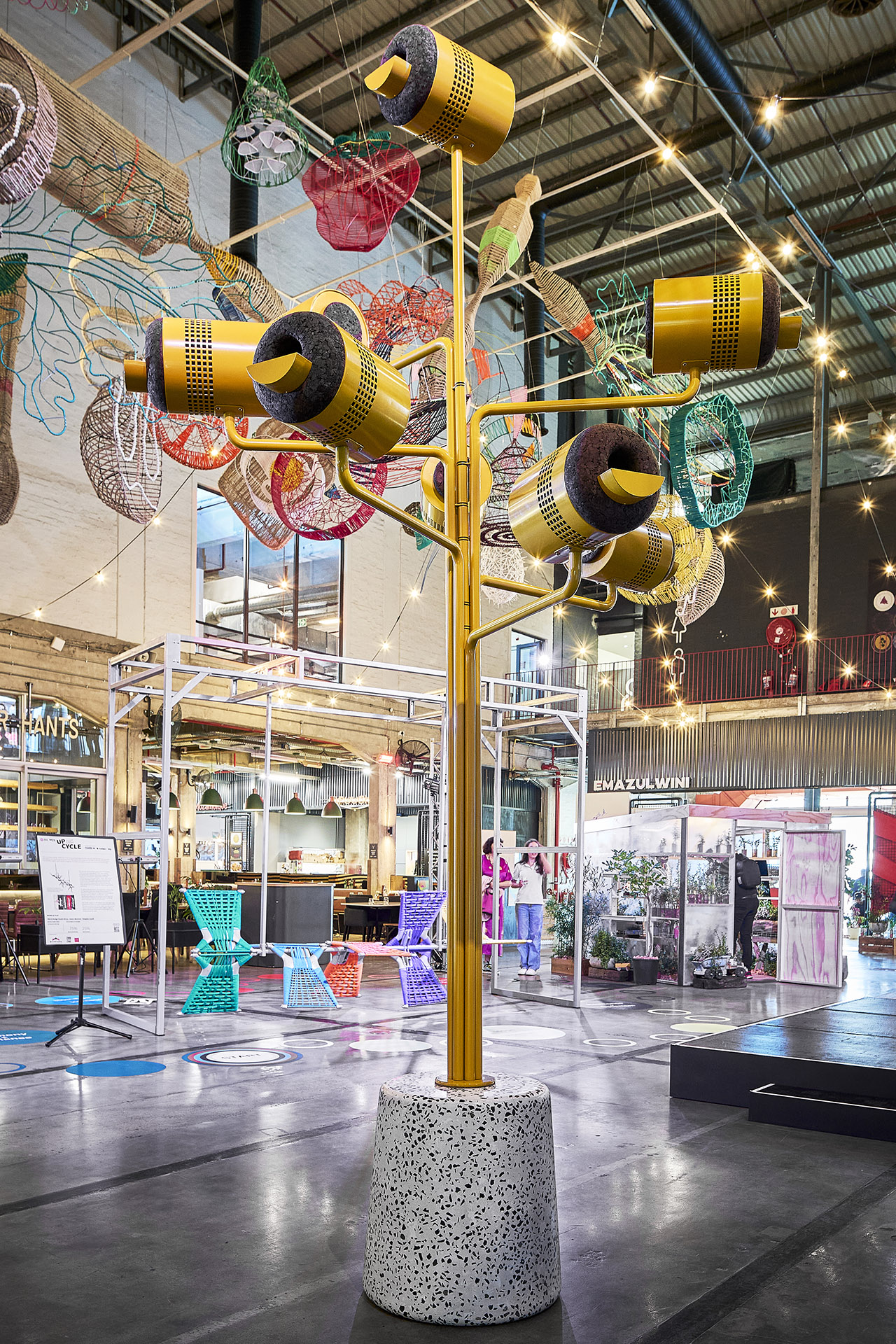
Climate Restoration Engineer Cabinette
Hoven Design
Tétris Sustainability Score: 97% Recycled Material, 3% New Material
An installation about the ‘future of work’ according to a job description set in the year 2050. The central character of this work is a naturalist of the next generation, known as a ‘Climate Restoration Engineer (CRE)’, and their ‘cabin-ette’ is their nature -based office for an indigenous seed library, a herbarium for preserved plant specimens, and a mobile apiary for the rehabilitation of bees. The PPC overall and jacket of the engineer are made from fabric recovered from acoustic desk dividers and safety tape.
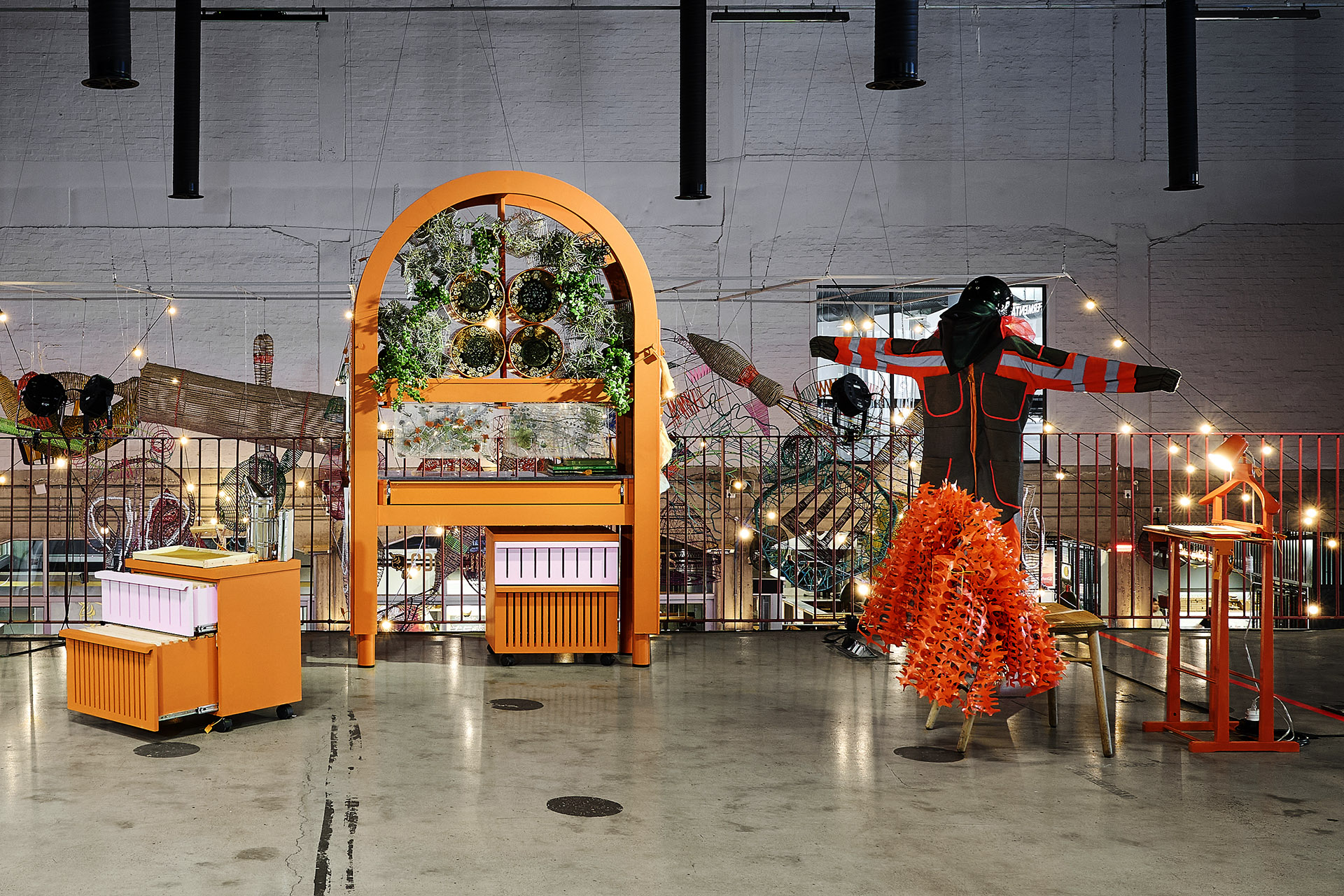
Playscape
Ananta Design Studio
Tétris Sustainability Score: 75% Recycled Material, 25% New Material
A recovered dustbin anchors a playful chandelier created with four local artisans – Re.Bag.Re.Use, Monkeybiz, Cape Town-based seamstress Virginia Mukanda, and Seatree Emporium. A feature of the chandelier is a forest of kelp fronds crocheted by Re.Bag.Re.Use from 501 repurposed audio cassette tapes and other plastic waste. The installation invites you to imagine the future of the workspace as playful nature-immersed spaces. Importantly the fronds located on the ground provide flexible bolsters to support cultures that are accustomed to working while seated.
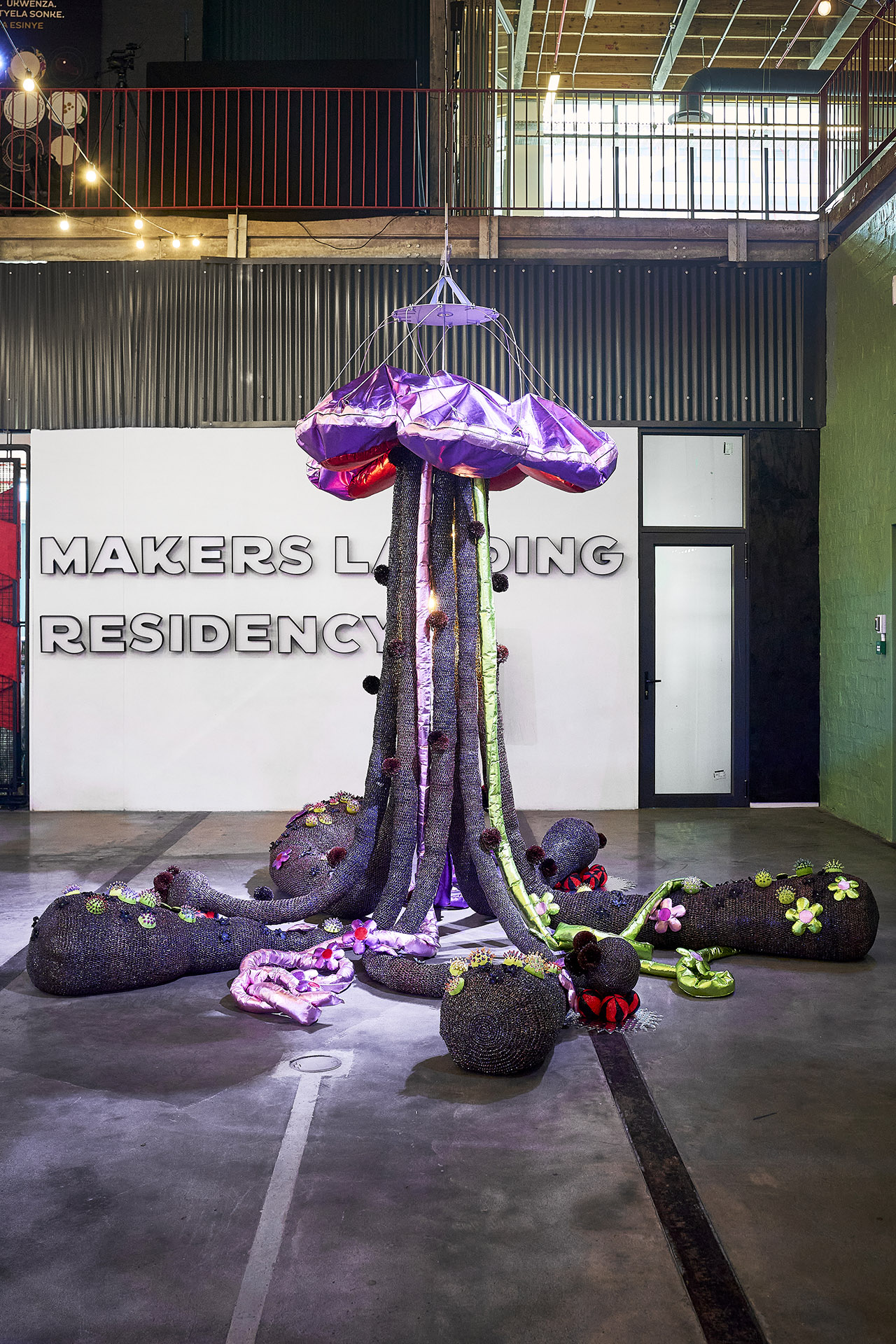
Carrefour
Patrick Bongoy (finalist in Loewe Foundation Craft Prize 2024)
Tétris Sustainability Score: 98% Recycled Material, 2% New Material
The intercrossing staircase is made of 82 desk bookshelves previously used by Sanlam insurance staff to hold insurance reference books. The raised intersection is seen as a platform for creating opportunities for people to meet and exchange ideas.
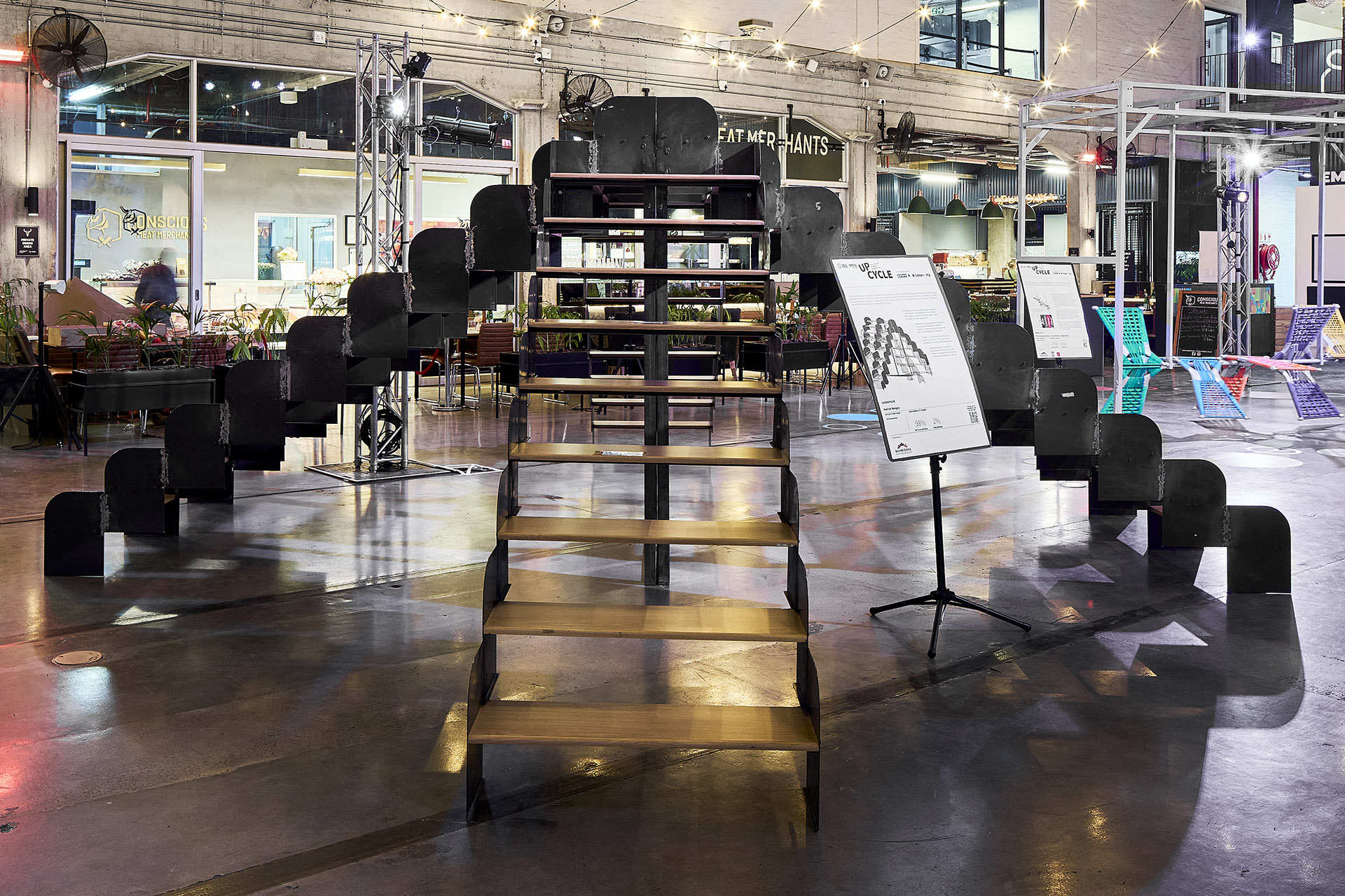
Carrefour
Patrick Bongoy (finalist in Loewe Foundation Craft Prize 2024)
Tétris Sustainability Score: 96% Recycled Material, 4% New Material
Two tall lamps referencing the importance of the palm tree in African culture both as a source of food but also a means to an income through the bi-products of palm oil. Each lamp rests on a tower of plastic bins and the fronds are created from recovered desk bookshelves. For Patrick the importance of UPCYCLING is the playful in-situ response to materials and objects and allowing the process of creativity to suggest new possibilities for what they may become. In much the same way the evolution of the future of work is projected as a creative process that can’t be over pre-scripted.
